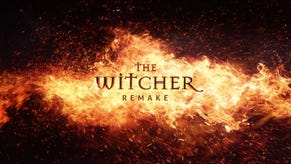ACS: Law quits over death threats
Letter sending lawyer has had enough.
The solicitor behind one of the companies responsible for sending threatening letters to illegal file-sharers has ceased his work following death threats.
ACS: Law has sent thousands of letters to alleged file-sharers, including gamers.
In a statement read to the patent court in London, reported by the BBC, solicitor Andrew Crossley said he had ceased all such work.
"I have been subject to criminal attack. My e-mails have been hacked. I have had death threats and bomb threats," he said in the statement.
"It has caused immense hassle to me and my family," he added.
The patent court is looking at 26 cases brought by ACS: Law on behalf of its client, MediaCAT.
Normally, law firms specialising in cracking down on illegal downloaders approach torrent sites and ask for the names of Internet Service Providers used by people who download cracked games.
They then write to the ISPs threatening legal action if they refuse to spill the account details of users.
From that, real names are drilled down, and letters are sent out. Last November the maker of upcoming PC exclusive The Witcher 2 told Eurogamer those who download it illegally could receive a letter demanding they pay a fine or face legal action.
But the process has come under scrutiny in recent months for a perceived lack of efficiency and questions around security.
Responsibility lies with the person paying the ISP bill, but the person who downloaded the game illegally could have been someone else. Thousands of people reckon they've been wrongly accused of illegally downloading and sharing copyright protected material via the internet, according to Which?.
UK consumers "cannot be held legally responsible for any illicit online file sharing activity which occurs without their knowledge, or consent, on their unsecured wireless networks", Roger Wyand QC, a barrister specialising in intellectual property law and joint head of Hogarth Chambers, reckons.
ACS: Law and MediaCAT has signed deals with various copyright holders allowing it to pursue copyright infringement cases on their behalf.
Apparently copyright owners receive a 30 per cent share of any recouped revenue while ACS: Law takes a 65 per cent share.
Letters gave members of the public a simple choice: pay a fine of around £500 or go to court.
Crossley denied the accusation he was seeking to make money with no intention of taking any cases to court.
"It has always been my intention to litigate and, but for the fact that I have ceased this work, my intention was to litigate forcefully in these 26 cases," he said.
Mr Crossley is subject to an ongoing investigation by the Solicitors Regulation Authority. Judge Birss said he was considering banning MediaCAT from sending any more such letters until the issues raised by the cases had been resolved.
Rival letter sending firm GCB Ltd is also said to have ceased sending letters. Judge Birss is expected to deliver his judgement on the case later in the week.
Have you received a letter from ACS: Law?















